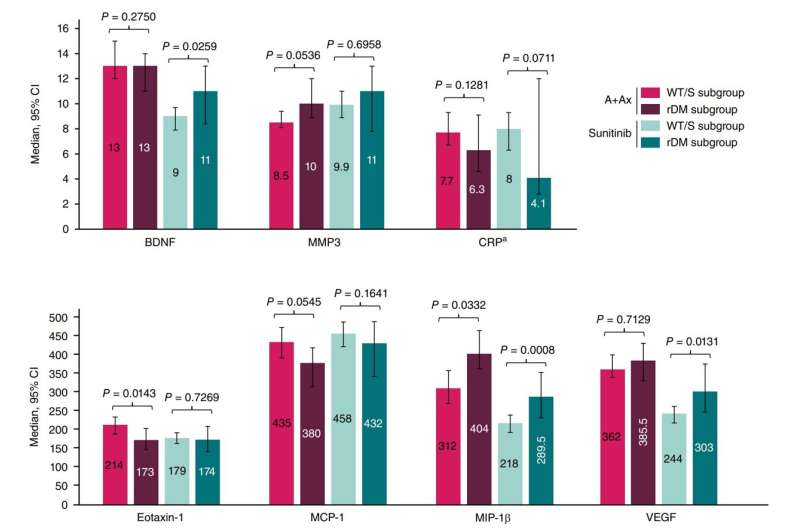This article has been reviewed according to Science X's editorial process and policies. Editors have highlighted the following attributes while ensuring the content's credibility:
fact-checked
peer-reviewed publication
trusted source
proofread
Kidney cancer treatments and tumor biology can activate different immune-modifying processes in patients

An analysis of blood and tumor samples from patients in a clinical trial comparing two therapies for advanced renal cell carcinoma shows that different immunomodulatory mechanisms are at work depending on the type of treatment and the genetic makeup of the cancer.
The phase III trial, dubbed JAVELIN Renal 101, demonstrated that patients treated with avelumab, a type of immunotherapy, and axitinib (an anti-angiogenic) had longer progression-free survival (PFS) than those treated with sunitinib. In analyzing participants' blood and tumor samples, researchers found that treatment with avelumab and axitinib led to a greater change in T-cell repertoire but less change in overall T-cell numbers than treatment with sunitinib.
Patients in the avelumab and axitinib cohort whose tumors had mutations in two or more of 10 genes previously linked to PFS had distinct profiles of circulating and tumor-infiltration immune cells compared to those with wild-type or single-mutant tumors. This suggests that the molecular makeup of the tumor, as well as the treatment administered, affects the variety and activity of immune cells mobilized in response to treatment.
The findings highlight that the mechanisms of immune modulation are different in patients treated with immunotherapy and anti-angiogenic combinations. The results also point to the role of tumor biology in the diversity and actions of tumor-infiltrating immune cells brought into action by these treatments. The findings might be important for predicting or understanding treatment outcomes in advanced kidney cancer.
The paper is published in the journal Cancer Discovery.
More information: Toni K. Choueiri et al, Integrative Analyses of Tumor and Peripheral Biomarkers in the Treatment of Advanced Renal Cell Carcinoma, Cancer Discovery (2024). DOI: 10.1158/2159-8290.CD-23-0680

















